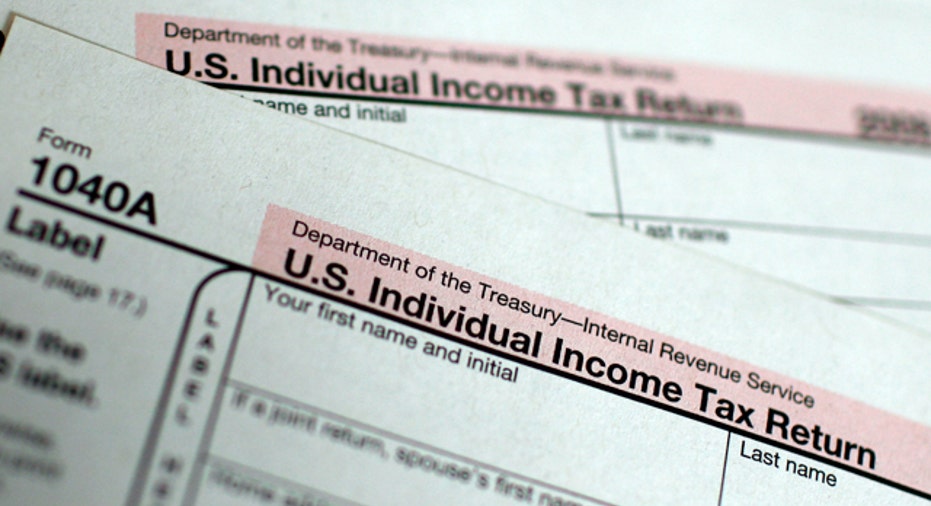To Give or Not to Give? The 2-Year Estate Planning 'Opportunity'

Much is being made in financial and estate planning circles about last years 11th hour passage of the 2010 Tax Relief Act(1), the first major piece of legislation passed by the newly-elected Republican majority in the House of Representatives.
Although the law reinstated estate and gift taxes, which had enjoyed a one-year hiatus in 2010, it instituted much lower rates and higher exemption amounts(2) than both would have reverted to had they been allowed to expire. This act sent a symbolic message to the Obama White House that two years of Democrats running roughshod over Washington were over.
Unfortunately, the new provisions are temporary and they only apply to amounts passed either through gifts (i.e. made while youre alive) or estates (i.e. after youre dead) during this year and next. When 2012 ends, the tax rates and exemption amounts revert back to where they were in 2001.
According to CCH, a leader in tax and accounting services and software, heres how things will change at the end of 2012 unless, of course, Congress tinkers with the rules again:
Clearly, unless youre extremely wealthy and willing and able to part with significant assets before the end of 2012, these lower amounts arent of much interest.
Or are they?
Attorney Harold Zaritsky is a nationally-recognized expert on estate planning and, like most professionals in the field, is frustrated with the changing, short-term nature of the estate and gift tax rules over the past decade. Individuals and corporations plan in five to 10 year increments, he says, Estate planning is done in generational increments and really needs more stability.
Admitting that the estate tax is a lightning rod for emotions, Zaritsky says theres no telling whether the rules currently in effect will be extended, allowed to revert back to 2001 levels, or altered in some other way. Congress has shown itself to be unpredictable. All one can do, he says, is work within the law as it stands today.
In a tongue-in-cheek way, Zaritsky notes that telling clients to die now is probably advice theyd reject, even though they could pass $5 million in assets tax free. However, he says, the current two-year window is a rare opportunity for making large gifts to future generations by gifting assets to a trust for the benefit of children and grandchildren. (Especially since making a gift, by definition, is something you do while you are alive!)
He recommends the trust be set up as a grantor trust, where the person making the gift--say, grandma--pays the income tax on any income the trust earns each year instead of the trust paying it. This avoids bleeding assets from the trust and allows them to continue to appreciate. In addition, even if grandma pays the tax on behalf of the trust, the law does not consider this another gift. Thus, as a practical matter, Zaritsky says, its a gift, a tax-free gift!
One big unknown is what happens if you have a trust or estate plan drawn up based on the $5 million exclusion amount in effect between now and Dec. 31, 2012, but you die after that date? If the amount excluded from estate/gift tax is lower at that time, will the government try to re-capture or claw back the tax break you received?
Zaritsky admits its a possibility.
If the estate exemption amount is $1 million in the year of your death, instead of the $5 million it stands at today, your estate might have to cough up more tax. However, in terms of making a large gift through a trust, he calls this concern a minor issue. The main thing to realize, he says, is that if theyre invested properly, the assets in your trust should appreciate in value. Even if the gift exemption amount is lower when you die, only the value of the gift at the time you made it is potentially subject to tax. Any growth in the value of the assets held by the trust will avoid tax, and thats what well accomplish, even if theres a clawback.
The key is that the sooner you set up a trust, the more time the assets have to appreciate. Since the gift tax exclusion is currently slated to revert back to $1 million in 2012, presumably you could safely move that much into a trust today. Then, no matter what the trust is worth at your death, it will not be subject to tax. However, according to Zaritsky, even if you intend to make a smaller gift it makes sense to do so now. "If your gift is less than $1 million, there's no urgency [in terms of gift tax]. But it's always better to do this sooner rather than later because it removes future growth from tax."
1. Formally called the Tax relief, Unemployment Insurance Reauthorization and Job Creation Act of 2010.
2. The amount you can exclude, i.e. give or leave without any tax consequences. For this reason, it is also referred to as the exclusion amount.
Ms. Buckner is a Retirement and Financial Planning Specialist at Franklin Templeton Investments. The views expressed in this article are only those of Ms. Buckner or the individual commentator identified therein, and are not necessarily the views of Franklin Templeton Investments, which has not reviewed, and is not responsible for, the content.
If you have a question for Gail Buckner and the Your $ Matters column, send them to: yourmoneymatters@gmail.com, along with your name and phone number.



















